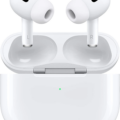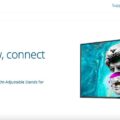
It’s frustrating when macOS shows “Not connected” next to Bluetooth PAN after pairing your laptop and phone. Bluetooth PAN (Personal Area Network) is a standard way of enabling Bluetooth tethering a short-range data-sharing setup that lets one device share internet with another over Bluetooth.
But starting with macOS Monterey, Apple dropped support for this feature, meaning newer systems no longer support Bluetooth PAN at all. Still, for older versions or other platforms, the fix often comes down to clearing pairings, checking compatibility, or setting up the connection manually.
Common Reasons for Bluetooth PAN Not Connecting
An episode of a Bluetooth PAN not working usually traces back to four culprits. First, device-profile mismatches (some adapters skip PAN, so macOS and the phone never handshake, triggering a PAN connection error) .
Stale drivers or an unpatched macOS build that leaves the Bluetooth stack misbehaving -one software update often fixes that. Also, Bluetooth being off or the module crashing, which shows up as Bluetooth Not Available under Network until the radio is toggled back on or preference files are reset.
And finally, radio interference from crowded peripherals or even a noisy USB-C hub, a problem that often clears up after disabling extra gadgets or moving the laptop a few inches- distance still matters with Mac Bluetooth issues.
Initial Checks Before Troubleshooting
Start with the basics: run a Bluetooth compatibility check to confirm both devices actually support the Personal Area Network profile-macOS should list ‘’Bluetooth PAN’ under System Settings Network, while Windows shows it in Bluetooth & devices.
Once support is confirmed, toggle Bluetooth off and on, then actively enable Bluetooth PAN from the quick-actions tray or menu bar; radios often idle until forced awake.
Finally, clear out stale or redundant pairings, pair the two devices again, and walk through a clean PAN connection setup-old handshake data is a common roadblock that disappears after this quick reset.
How to Manually Connect to Bluetooth PAN on Mac
That stubborn Not Connected badge can vanish fast: open the menu system settings ( or System Preferences) – Network, hit the plus under the service list, choose connect Bluetooth PAN from the interface drop-down, name the service, tap create, then Apply.

Pair the phone if needed, pick it in the Device field, tap connect , and macOS hands over internet duties via Mac Bluetooth tethering. If the option ever disappears after an update, simply repeat the sequence to set up PAN manually, and the hotspot springs right back to life.
Starting from macOS Monterey, Apple removed support for Bluetooth PAN, so this method no longer works. Users on newer macOS versions should instead use Wi-Fi or USB Personal Hotspot for tethering from an iPhone, or Bluetooth tethering via Android, which may appear as an internet option once paired.
Resetting Bluetooth and Re-pairing Devices
Start by performing a reset Bluetooth on your Mac—hold Shift + Option while clicking the Bluetooth icon, choose Debug, then Reset the Bluetooth module.

After that, open System Settings > Bluetooth, remove the stubborn device, and put it back into pairing mode to re-pair the Bluetooth device, clearing out any old configurations.
Using Terminal to Force a Bluetooth PAN Connection
Stuck in a café as the Mac refuses to join a Bluetooth PAN? The Terminal Bluetooth connect method provides a reliable workaround: install blueutil via Homebrew with “brew install blueutil,” retrieve the device’s MAC address using “blueutil –paired,” then execute the Bluetooth PAN terminal command “blueutil –connect <MAC>.”
If “Bluetooth PAN” is missing under System Settings > Network, click the + icon, choose Interface: Bluetooth PAN, and Create; hit Apply, then open the Bluetooth menu bar icon, hover over the device, and select Connect to Network. This Bluetooth PAN fix restores connectivity whenever GUI options falter.
How to Use Bluetooth PAN on Android and iPhone
When your Mac can’t reach Wi-Fi but your phone still has service, you can share mobile data via Bluetooth. On your Android device, head to Settings > Network & Internet (or Connections), tap Hotspot & Tethering, and toggle on Android PAN settings by enabling Bluetooth tethering.
On an iPhone, open Settings > Personal Hotspot and flip the switch to turn it on. Then on your Mac, click the Apple menu > System Settings > Bluetooth to pair with your phone. Finally, open System Settings > Network, add or select Bluetooth PAN, pick your device and press Connect—that’s your Bluetooth tethering setup complete.
Remove or Reset PAN Configurations on Mac
Sometimes leftover PAN entries trip you up, so here’s how to delete PAN services: open System Settings, click Network, select “Bluetooth PAN” in the sidebar, then press the minus button (or hit Delete) to remove Bluetooth PAN completely.
Next, click the plus icon, choose Bluetooth PAN as the interface, and click Add to reset PAN network settings cleanly—once the device reconnects, the PAN setup will be fresh and ready to go.
Conclusion
Battling a stubborn Bluetooth PAN often comes down to verifying device compatibility, clearing old pairings, and setting up a fresh manual connection. If that doesn’t fix Bluetooth PAN not connected, toggle Bluetooth off and on before re-pairing in network settings.
Bluetooth PAN keeps data encrypted and sips power, and this makes it ideal for secure, low-energy sharing. With these moves, it’s easy to resolve PAN issues on the spot.








